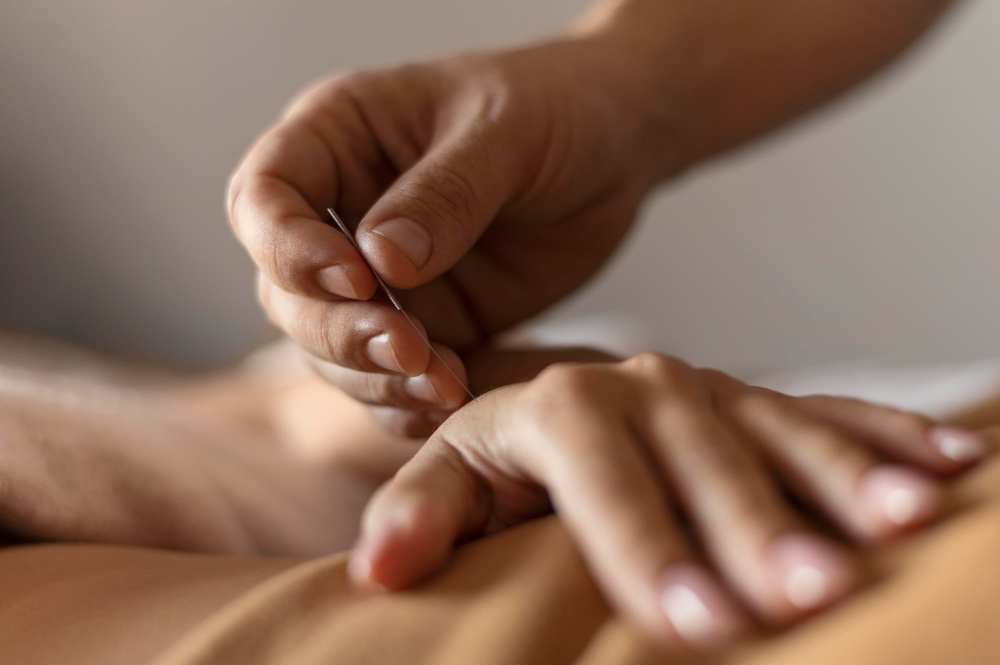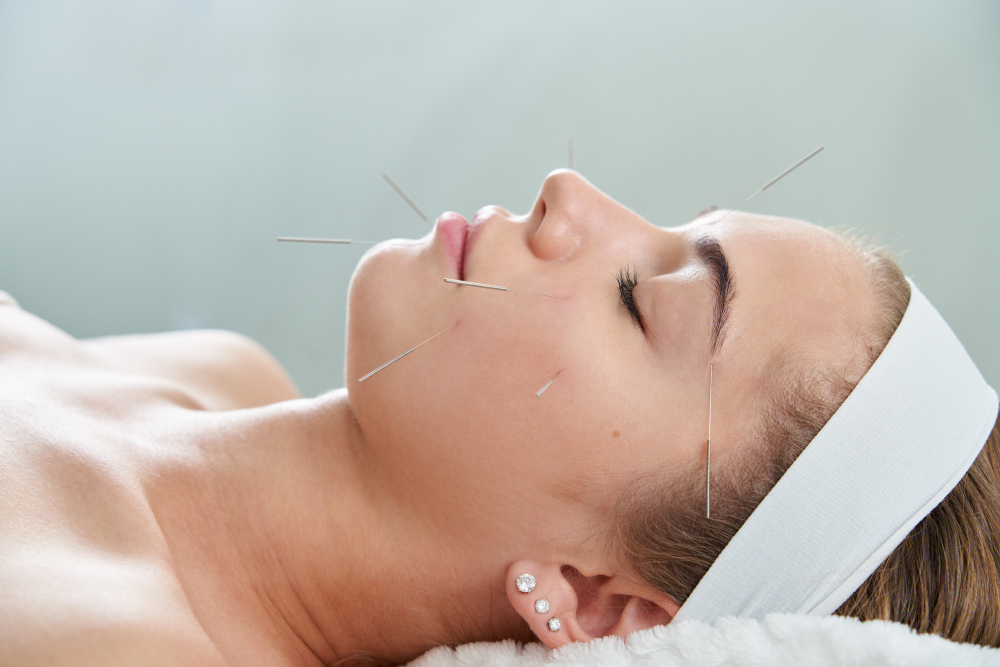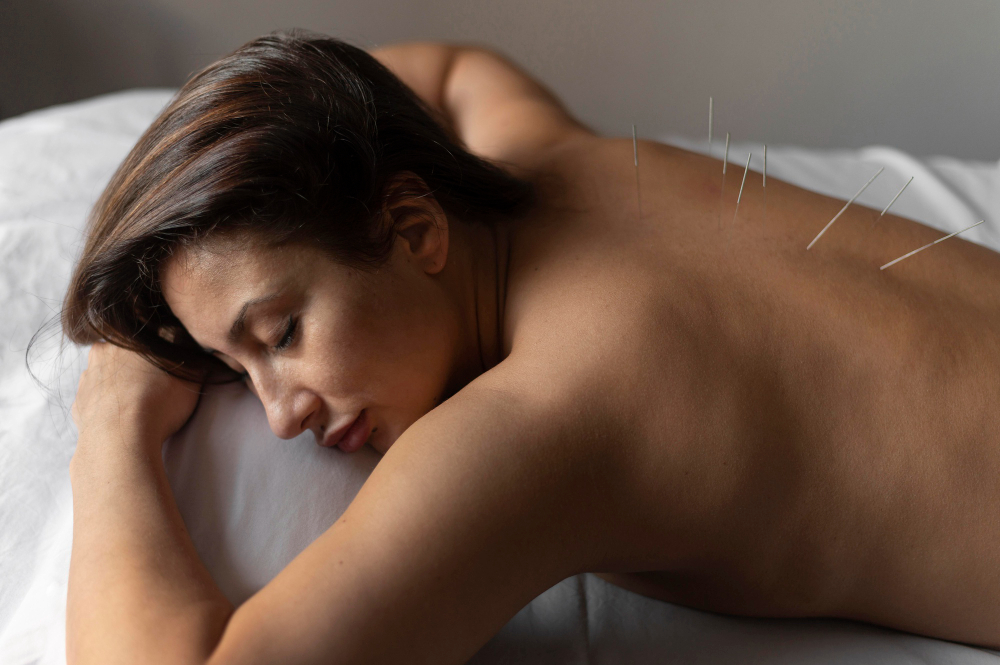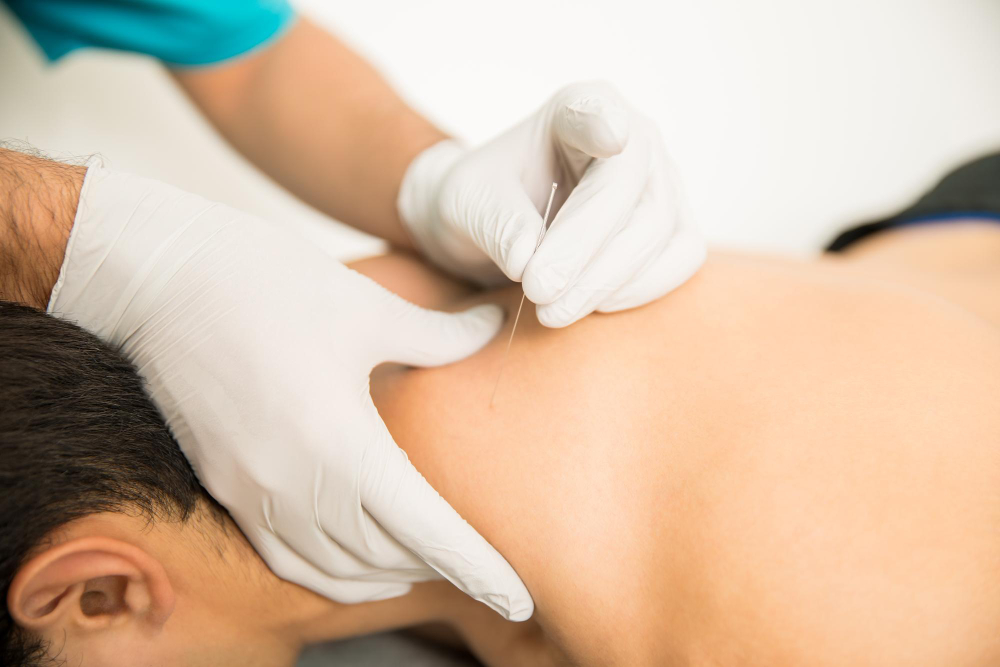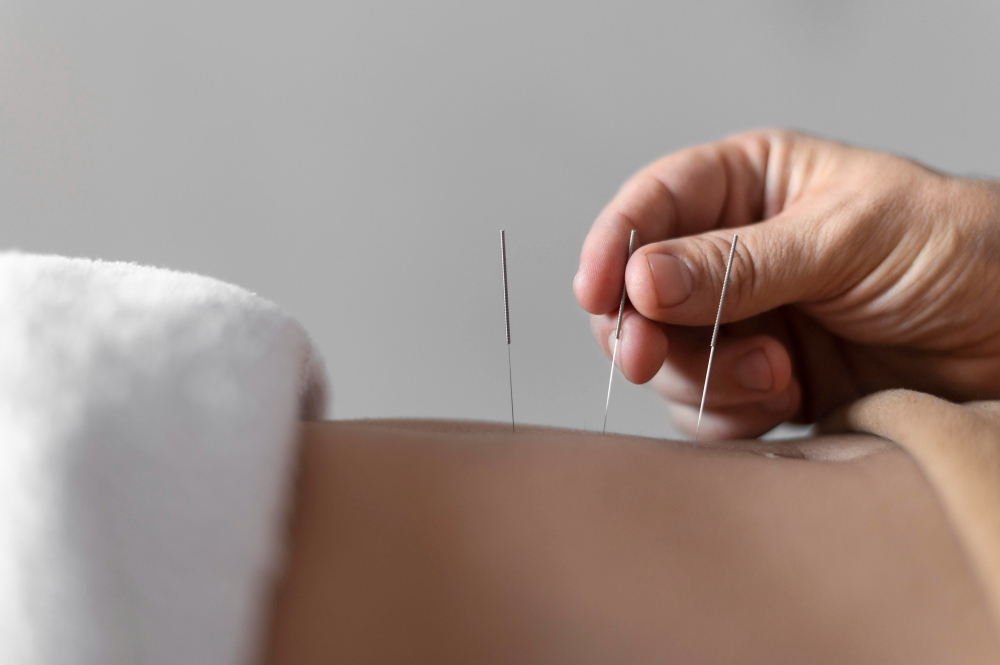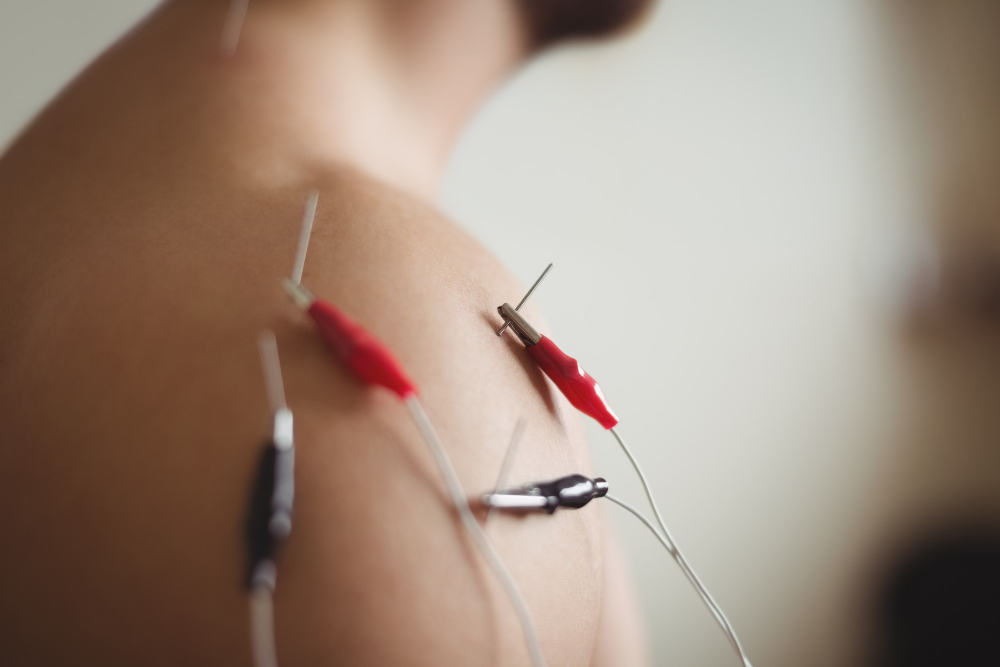Table of Contents
Introduction
The ancient practice of acupuncture has stood the test of time, and for good reason. With its origins rooted in traditional Chinese medicine, acupuncture is gaining recognition and popularity in the Western world for its effectiveness in treating a wide range of health conditions. But have you ever wondered how it actually works? In this article, we delve into the science behind acupuncture and explore why it is such an effective treatment.
Acupuncture works on the principle that the body has a network of meridians, or energy pathways, throughout which vital energy, or Qi, flows. By inserting tiny, sterile needles into specific points along these meridians, acupuncturists stimulate the body’s natural healing response. Research has shown that acupuncture can increase blood flow, trigger the release of endorphins, and regulate the body’s neurotransmitters, among other mechanisms.
But it’s not just the physical aspects that make acupuncture effective; it also addresses the mind-body connection. By promoting relaxation and reducing stress, acupuncture helps restore balance and harmony within the body. So, whether you’re seeking relief from chronic pain, dealing with anxiety, or simply looking to improve your overall well-being, acupuncture may just be the solution you’ve been searching for.
What is acupuncture?
Acupuncture is a key component of traditional Chinese medicine (TCM) and involves the insertion of thin, sterile needles into specific points along the body’s meridians. These meridians are believed to be pathways through which vital energy, or Qi, flows. By stimulating these points, acupuncturists aim to restore the balance and flow of Qi, promoting healing and overall well-being.
Acupuncture has been practiced for thousands of years and has evolved into various forms, including traditional acupuncture, electro-acupuncture, and acupressure. While the practice of acupuncture is rooted in ancient Chinese philosophy and beliefs, modern research has shed light on its mechanisms and effectiveness.
The history of acupuncture
The origins of acupuncture can be traced back to ancient China, where it was first mentioned in the Huangdi Neijing, also known as the Yellow Emperor’s Inner Canon, a medical text dating back to around 200 BCE. The practice of acupuncture has since evolved and spread throughout East Asia and the rest of the world.
Historically, acupuncture therapy was used to treat a variety of ailments, including pain, digestive disorders, and emotional imbalances. The practice gained recognition in the West in the 1970s and has continued to grow in popularity ever since.
How does acupuncture work?
Acupuncture works on the principle that the body has a network of meridians, or energy pathways, throughout which vital energy, or Qi, flows. By inserting tiny, sterile needles into specific points along these meridians, acupuncturists stimulate the body’s natural healing response.
Research has shown that acupuncture can have several physiological effects on the body. One of the key mechanisms is the increase in blood flow to the treated area. When a needle is inserted, it causes a local inflammatory response, which in turn leads to increased blood circulation. This increased blood flow brings oxygen, nutrients, and immune cells to the area, promoting healing and reducing inflammation.
Another mechanism of acupuncture is the release of endorphins, the body’s natural painkillers. Studies have shown that acupuncture can stimulate the release of endorphins, which can help alleviate pain and promote a sense of well-being. Additionally, acupuncture has been found to regulate the body’s neurotransmitters, such as serotonin and dopamine, which play a role in mood regulation and pain perception.
The principles of Traditional Chinese Medicine (TCM)
To fully understand acupuncture, it’s important to grasp the principles of Traditional Chinese Medicine (TCM) on which it is based. According to TCM, the body is seen as a holistic system, where physical, emotional, and spiritual aspects are interconnected.
In TCM, health is believed to be maintained by the free flow of Qi throughout the body. When there is an imbalance or blockage in the flow of Qi, symptoms and disease may arise. Acupuncture aims to restore the balance and flow of Qi, allowing the body to heal itself.
TCM also recognizes the mind-body connection and the impact of emotions on health. Stress, anxiety, and other emotional imbalances can disrupt the flow of Qi and contribute to disease. Acupuncture helps to promote relaxation, reduce stress, and restore emotional balance, allowing the body to heal on multiple levels.
The benefits of acupuncture
Acupuncture offers a wide range of benefits, making it a versatile treatment option for various health conditions. Aside from its ability to relieve pain, acupuncture has been shown to be effective in treating conditions such as migraines, digestive disorders, insomnia, fertility issues, and mental health disorders like anxiety and depression.
One of the advantages of acupuncture is its minimal side effects. Unlike pharmaceutical interventions, acupuncture is a natural and non-invasive treatment that carries minimal risk. This makes it a suitable option for those who may be sensitive to medications or prefer a more holistic approach to healthcare.
Additionally, acupuncture can be used in conjunction with other forms of treatment, such as medication or physical therapy, to enhance their effectiveness. It can also be used as a preventive measure to maintain overall health and well-being.
Conditions treated with acupuncture
Acupuncture has been found to be effective in treating a wide range of health conditions. Some of the most common conditions treated with acupuncture include:
1. Chronic pain: Acupuncture has been shown to be effective in relieving pain caused by conditions such as arthritis, back pain, migraines, and fibromyalgia.
2. Digestive disorders: Acupuncture can help alleviate symptoms of digestive disorders such as irritable bowel syndrome (IBS), acid reflux, and constipation.
3. Mental health disorders: Acupuncture has been found to be beneficial in managing anxiety, depression, and stress-related disorders by promoting relaxation and reducing the body’s stress response.
4. Women’s health issues: Acupuncture can be used to address menstrual irregularities, fertility issues, menopausal symptoms, and pregnancy-related discomfort.
5. Respiratory conditions: Acupuncture has been shown to have a positive effect on respiratory conditions such as asthma, allergies, and sinusitis.
The science behind acupuncture – research and studies
While the ancient practice of acupuncture has been passed down through generations, modern research has provided valuable insights into its mechanisms and effectiveness. Numerous studies have been conducted to explore the physiological and therapeutic effects of acupuncture.
Research has shown that acupuncture can have a significant impact on the body’s nervous system. It can activate certain brain regions and stimulate the release of neurotransmitters, such as endorphins, which play a role in pain relief and mood regulation.
Several studies have also demonstrated the effectiveness of acupuncture in pain treatment. For example, a meta-analysis of 29 high-quality studies found that acupuncture was effective in relieving chronic pain, with effects lasting beyond the treatment period.
Another area of research is acupuncture’s effect on inflammation. Acupuncture has been found to reduce inflammation by modulating the immune response and influencing the release of inflammatory mediators.
Furthermore, acupuncture has been shown to have positive effects on the cardiovascular system. Studies have found that acupuncture can lower blood pressure, improve blood circulation, and regulate heart rate variability.
The process of an acupuncture treatment
If you’re considering acupuncture as a treatment option, it’s important to understand what to expect during a typical session. The first step is finding a qualified acupuncturist who is trained and licensed in acupuncture.
During the initial consultation, the acupuncturist will assess your health history, discuss your symptoms, and develop a treatment plan tailored to your specific needs. The treatment itself involves the insertion of thin, sterile needles into specific points on your body. The needles are typically left in place for about 15-30 minutes, during which you may experience sensations such as tingling, warmth, or a dull ache.
The number of sessions required will depend on the nature and severity of your condition. Acupuncture is often used as a course of treatment, with regular sessions scheduled over a period of several weeks or months. It’s important to follow the recommended treatment plan and communicate any changes or improvements to your acupuncturist. Learn about weight loss with acupuncture.
Finding a qualified acupuncturist
When seeking acupuncture treatment, it’s crucial to find a qualified and experienced acupuncturist. Look for acupuncturists who are licensed by the appropriate regulatory bodies and have completed formal training in acupuncture.
You can ask for recommendations from your primary healthcare provider or seek referrals from friends or family members who have had positive experiences with acupuncture. It’s also a good idea to research the acupuncturist’s credentials, read reviews, and ask about their experience in treating your specific condition.
During your initial consultation, don’t hesitate to ask questions about the acupuncturist’s training, experience, and treatment approach. A good acupuncturist will take the time to listen to your concerns, explain the treatment process, and address any questions or doubts you may have.
Conclusion
Acupuncture is a time-tested healing modality that offers a holistic approach to health and well-being. Its effectiveness in treating a wide range of conditions, coupled with its minimal side effects, makes it a valuable treatment option for those seeking natural and non-invasive alternatives.
Through its impact on the body’s nervous system, immune response, and energy flow, acupuncture promotes healing, reduces pain, and restores balance on multiple levels. Whether you’re seeking relief from chronic pain, dealing with anxiety, or simply looking to improve your overall well-being, acupuncture may just be the solution you’ve been searching for.
So, if you’re curious about the science behind acupuncture and the potential benefits it holds, don’t hesitate to explore this ancient practice and consult with a qualified acupuncturist. Open your mind to the possibilities of acupuncture and discover how it can contribute to your journey towards optimal health and wellness.

